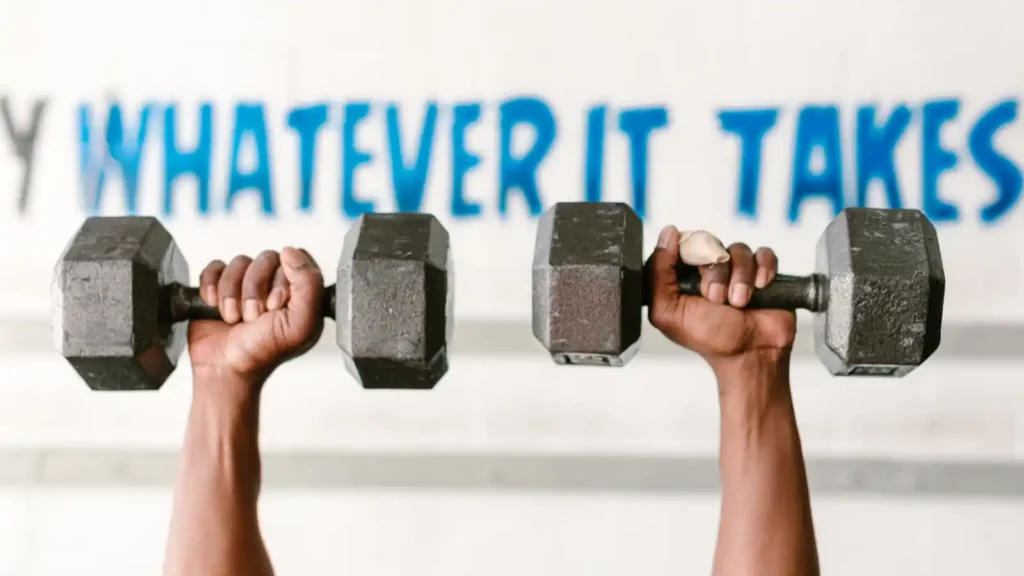Eustachian Tube Dysfunction (ETD) is a common condition where the Eustachian tubes—small passages connecting the middle ear to the back of the throat—don’t open or close properly. This can lead to symptoms like ear pressure, popping sounds, muffled hearing, and even pain.
Many people wonder if heavy weightlifting, especially exercises that involve lifting weights above the shoulders (like overhead presses, shoulder presses, or snatches), can cause or worsen ETD.
What is Eustachian Tube Dysfunction (ETD)?
The Eustachian tubes help regulate ear pressure and drain fluids from the middle ear. When these tubes get blocked or don’t function properly, it leads to ETD.
Common Symptoms of ETD:
Ear fullness or pressure
Popping or clicking sounds in the ear
Muffled hearing
Pain or discomfort in the ear
Dizziness or balance issues (in severe cases)
Common Causes of ETD:
Colds, allergies, or sinus infections (causing swelling)
Rapid altitude changes (like flying or diving)
Excessive earwax buildup
TMJ disorders (jaw joint issues affecting ear pressure)
Smoking or exposure to irritants
Chronic acid reflux (GERD)
But what about weightlifting? Can lifting heavy weights above the shoulders contribute to ETD?
When you lift heavy weights—especially overhead—your body undergoes significant pressure changes. Here’s how it may impact your Eustachian tubes:
- Increased Intra-Abdominal and Intrathoracic Pressure
Heavy lifting, especially compound movements like squats, deadlifts, and overhead presses, increases pressure in your chest and abdomen. This pressure can sometimes extend upward, affecting the Eustachian tubes.
Valsalva Maneuver: Many lifters hold their breath during heavy lifts (called the Valsalva maneuver) to stabilize their core. This increases pressure in the head and ears, potentially forcing air into the Eustachian tubes.
Pressure Imbalance: If the tubes don’t open properly to release this pressure, it can cause ear discomfort or ETD symptoms.
- Jaw Clenching and TMJ Stress
Lifting heavy weights often leads to jaw clenching, which can strain the temporomandibular joint (TMJ). Since the TMJ is near the Eustachian tubes, excessive tension here may contribute to ear pressure issues. - Poor Breathing Techniques
If you’re not breathing properly during lifts, you might create unnecessary pressure in your head, leading to ear congestion or popping sensations.
Can Overhead Weightlifting Cause ETD?
While heavy lifting doesn’t directly cause ETD, it can trigger or worsen existing ETD symptoms in some people. Here’s why:
- Sudden Pressure Changes
Overhead lifts (like shoulder presses or snatches) require a strong breath-holding technique. If your Eustachian tubes are already sensitive (due to allergies, colds, or sinus issues), this added pressure can make symptoms worse. - Existing Ear or Sinus Conditions
If you already have:
Sinus congestion
Allergies
Ear infections
TMJ dysfunction
…then heavy lifting (especially overhead) may aggravate ETD symptoms.
- Dehydration and Muscle Tension
Lifting heavy weights can cause dehydration and neck/shoulder tension, which may indirectly affect Eustachian tube function.
Where to Buy YELL51X OUZ4 Model: The Complete Guide

How to Prevent ETD While Lifting Weights
If you experience ear pressure or ETD symptoms after lifting, try these preventive measures:
- Improve Your Breathing Technique
Avoid excessive breath-holding (use controlled exhales during exertion).
Practice diaphragmatic breathing to reduce unnecessary head pressure.
- Stay Hydrated
Dehydration can thicken mucus, making ETD worse. Drink enough water before, during, and after workouts. - Warm-Up Properly
A good warm-up (neck rolls, jaw stretches, light shoulder mobility drills) can reduce tension that may affect the Eustachian tubes. - Modify Overhead Lifts if Needed
If overhead presses cause ear discomfort:
Reduce weight and focus on form.
Try seated presses (less strain than standing).
Switch to neutral-grip presses (easier on the shoulders and ears).
- Manage Allergies and Sinus Issues
Use a saline nasal spray before lifting.
Avoid lifting when congested.
Consider antihistamines if allergies are a problem.
- Strengthen Neck and Jaw Muscles
Gentle jaw exercises and neck stretches can help reduce tension that might contribute to ETD.
When to See a Doctor
Most ETD symptoms from lifting are temporary and resolve on their own. However, see a doctor if you experience:
Persistent ear pain
Hearing loss
Severe dizziness or vertigo
Fluid drainage from the ear
These could indicate an infection or another underlying issue needing medical attention.
Final Thoughts: Should You Stop Lifting Heavy Weights?
For most people, lifting weights (even overhead) does not cause long-term ETD. However, if you’re prone to ear pressure issues, you may need to adjust your training:
Focus on proper breathing
Reduce weight if needed
Stay hydrated and manage sinus health
If symptoms persist, consult an ENT specialist to rule out other conditions.

While we’ve covered the basics of how heavy lifting—especially overhead movements—can contribute to Eustachian Tube Dysfunction (ETD), there are a few more factors to consider. Understanding these can help you train smarter and avoid unnecessary ear discomfort.
- Blood Pressure Spikes During Heavy Lifts
When you lift extremely heavy weights, your blood pressure can temporarily spike. This sudden increase in pressure may affect the blood vessels around your ears and Eustachian tubes, leading to:
A feeling of fullness in the ears
Pulsatile tinnitus (hearing your heartbeat in your ears)
Increased ear pressure
If you already have high blood pressure (hypertension), this effect can be more pronounced. Monitoring your breathing and avoiding excessive straining can help.
- Neck and Shoulder Tightness
Heavy overhead pressing and deadlifts can cause significant tension in the neck, shoulders, and upper back. Since the Eustachian tubes are near these muscles, excessive tightness can:
Restrict proper Eustachian tube function
Cause referred ear pain
Worsen TMJ-related ETD symptoms
Solution: Incorporate post-workout stretching, foam rolling, and massage to relieve muscle tension.
- Pre-Existing Ear or Sinus Conditions
If you frequently suffer from:
Chronic sinusitis
Allergic rhinitis (hay fever)
Recurrent ear infections
…then heavy lifting may aggravate these conditions, making ETD symptoms worse. Managing allergies (with antihistamines or nasal sprays) and avoiding lifting during flare-ups can help.
- Dehydration and Thick Mucus
Intense workouts lead to sweating and fluid loss. Dehydration can thicken mucus in the sinuses and Eustachian tubes, making it harder for them to drain properly.
Prevention:
Drink plenty of water before, during, and after workouts.
Use a humidifier if you train in dry environments.
Avoid excessive caffeine or alcohol, which can dehydrate you further.
- Acid Reflux (GERD) and ETD
Heavy lifting, especially with a tight belt, can increase intra-abdominal pressure and trigger acid reflux. Stomach acid reaching the throat can irritate the Eustachian tube openings, leading to:
Chronic throat clearing
Hoarseness
Ear congestion
Fix: Avoid lifting on a full stomach, elevate your head while sleeping, and consider antacids if reflux is a problem.
Final Tip: Listen to Your Body
If you notice ear pressure, popping, or discomfort every time you lift heavy, consider:
Lowering the weight
Improving your breathing technique
Taking a break if symptoms persist
ETD from lifting is usually temporary, but if it becomes chronic, an ENT specialist can help identify underlying issues.
Detailed MacBook Review Miracoup 2025
FAQ: Can Lifting Weights Cause ETD?
Q: Why do my ears pop when I lift heavy weights?
A: This happens due to pressure changes from breath-holding (Valsalva maneuver). It’s usually harmless but can be uncomfortable if you have ETD.
Q: Can weightlifting cause permanent ear damage?
A: Unlikely, unless you have an underlying condition. Most ear pressure from lifting is temporary.
Q: Should I avoid overhead presses if I have ETD?
A: Not necessarily—try lighter weights, better breathing, and see if symptoms improve.
Q: Can neck tension from lifting cause ETD?
A: Yes, excessive neck/jaw tension can contribute to ear pressure. Stretching helps.











Be First to Comment